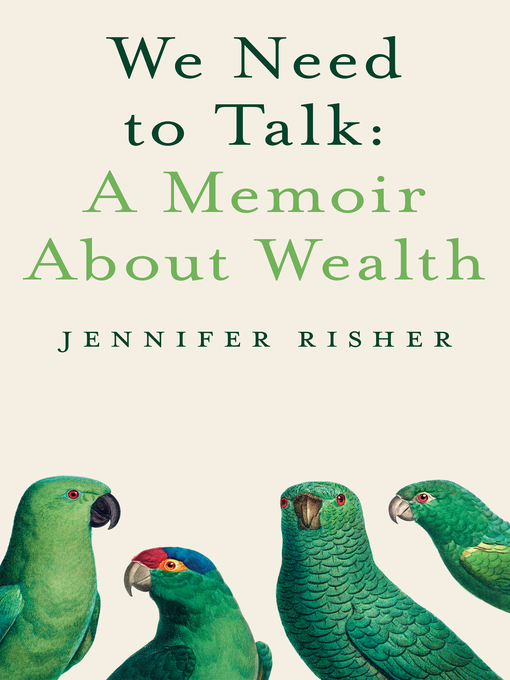When Jennifer Risher joined Microsoft in 1991, she met her husband, and with him became an extra-lucky beneficiary of the dot-com boom. By their early thirties, they had tens of millions of dollars. Today, there are millions of people like her. Jennifer's thought-provoking, personal story includes the voices of others in her demographic and explores the hidden impact of wealth on identity, relationships, and sense of place in the world. At a time when income-inequality is a huge problem, our country's economic system is broken, and money is still a taboo subject even among those closest to us, this engaging, introspective memoir is essential reading: a catalyst for conversation that demystifies wealth and inspires us to connect.
- Available now
- New eBook additions
- New kids additions
- New teen additions
- Most popular
- Try something different
- Trending on BookTok
- See all ebooks collections
- Available now
- New kids additions
- New teen additions
- Most popular
- Try something different
- See all audiobooks collections


